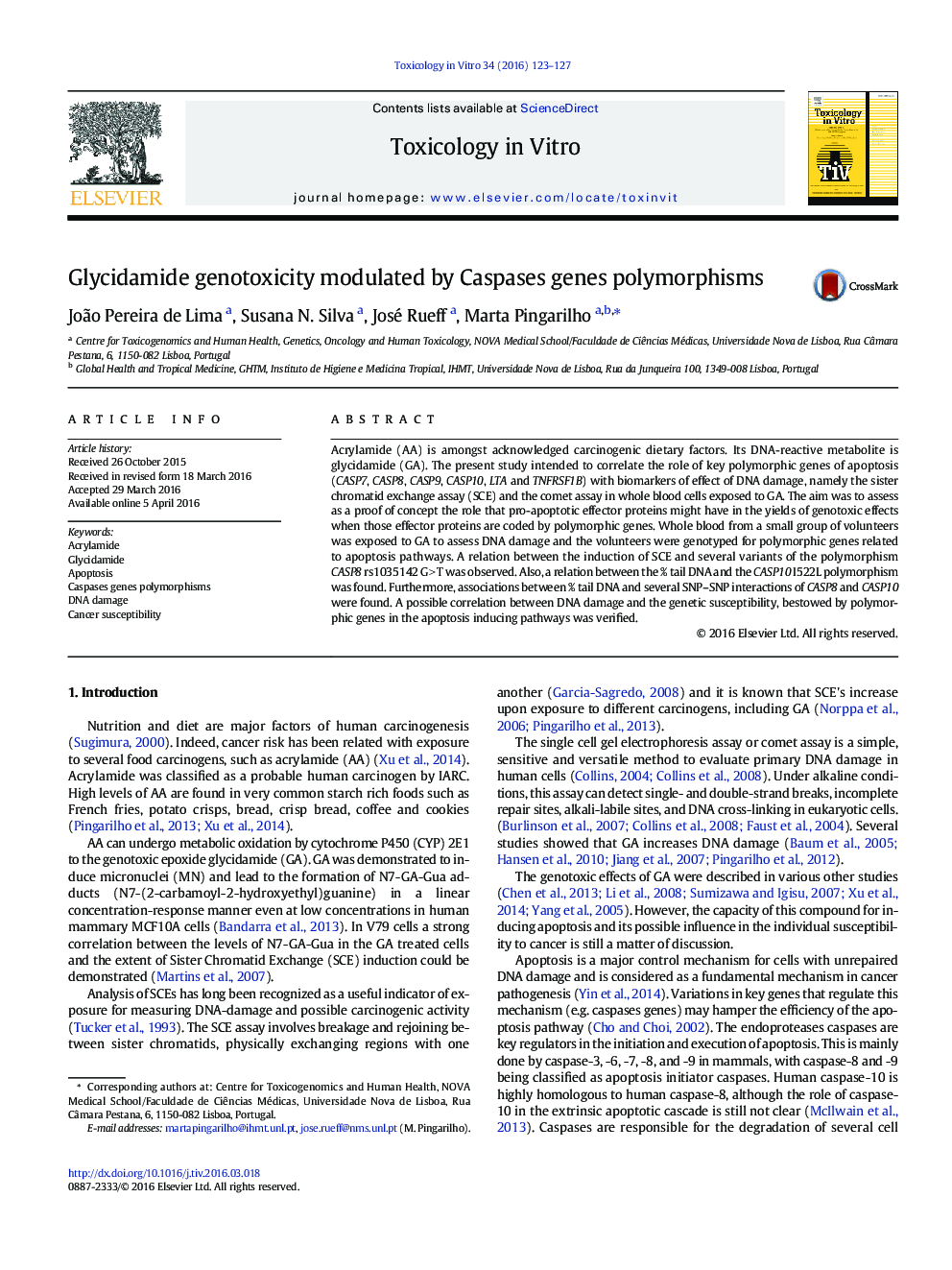| Article ID | Journal | Published Year | Pages | File Type |
|---|---|---|---|---|
| 5861101 | Toxicology in Vitro | 2016 | 5 Pages |
â¢CASP8 rs1035142 modify yields of SCEs by glycidamide.â¢CASP10 rs13006529 and SNP-SNP interactions of CASP8 and CASP10 modify % tail DNA.â¢Variants of CASP7, CASP9, LTA and TNFRSF1B had no effect on glycidamide genotoxicity.â¢The data is a proof of concept that apoptotic effectors influence the genotoxicity.
Acrylamide (AA) is amongst acknowledged carcinogenic dietary factors. Its DNA-reactive metabolite is glycidamide (GA). The present study intended to correlate the role of key polymorphic genes of apoptosis (CASP7, CASP8, CASP9, CASP10, LTA and TNFRSF1B) with biomarkers of effect of DNA damage, namely the sister chromatid exchange assay (SCE) and the comet assay in whole blood cells exposed to GA. The aim was to assess as a proof of concept the role that pro-apoptotic effector proteins might have in the yields of genotoxic effects when those effector proteins are coded by polymorphic genes. Whole blood from a small group of volunteers was exposed to GA to assess DNA damage and the volunteers were genotyped for polymorphic genes related to apoptosis pathways. A relation between the induction of SCE and several variants of the polymorphism CASP8 rs1035142 GÂ >Â T was observed. Also, a relation between the % tail DNA and the CASP10 I522L polymorphism was found. Furthermore, associations between % tail DNA and several SNP-SNP interactions of CASP8 and CASP10 were found. A possible correlation between DNA damage and the genetic susceptibility, bestowed by polymorphic genes in the apoptosis inducing pathways was verified.
